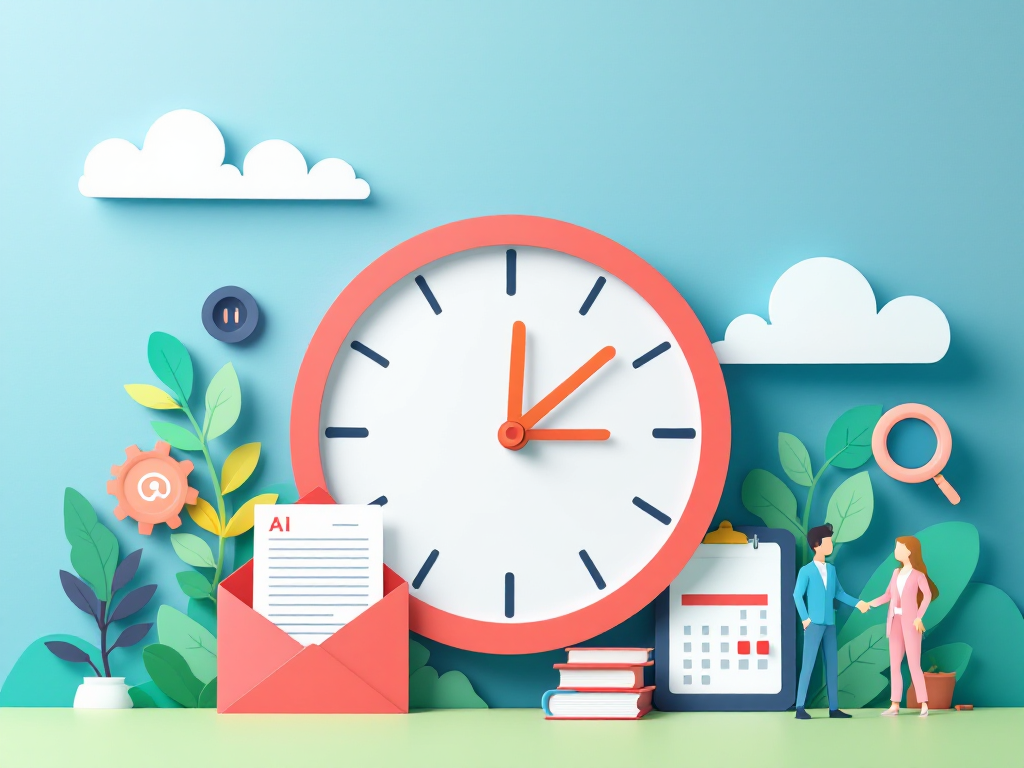
How to Follow Up After a Job Interview
Follow-Up after a Job Interview
Story Introduction
Meet Alex, a young graphic designer, anxiously sitting in a coffee shop and checking his smartphone every few minutes. He recently stormed out of an interview for his dream job at a top design agency. The interview went well; at least this is what he reassures himself when replaying every question and answer in his mind. But now he’s stuck in that limbo of expectation and uncertainty that lingers after every job interview. It’s a recurring situation for many people seeking jobs, when the significance of networking and following up becomes more and more clear. In the café, the ambient chatter and clinking of coffee cups fade around Alex, who can't help but think about the next step to come out as a stronger candidate on top.
Whot, Real-World Context & Personal Reflection
In the competitive job market of today, where every position comes with hundreds of applicants, Alex knows that standing out is paramount. He recalls a story told by a mentor about a simple follow-up note that can sometimes put the thumb on the scale for a candidate. Follow-up is not just about your continued interest but also the enforcement of the positive impression made during the interview. It's the kind of approach that career workshops and seminars are often geared toward; the art of keeping it professional, without sounding over-eager, nay, forward.
As Alex looks back on his career path, he remembers a time he failed to follow up following a good interview. Weeks went by, and he heard nothing; eventually he discovered that the job had been filled. The experience gave him a good education: a follow-up is not just polite but it is a part and parcel of the job seeking process and can make a lot of difference in the career. It reminds the employer that you’re a warm human being and that you’re not dead at the wheel, and gives the decision-making process a nudge in the direction of positive feedback.
➡️ Key Insights & Data Points
As Alex reflects on what comes next, he thinks about the most important ingredients in the follow-up process. Here are some lessons, and a few practical takeaways, that might guide anyone in his spot:
- Timing: Following up should be done quickly. In an ideal scenario, your thank you email should be within 24 hours of the interview. It expresses gratitude for the opportunity and keeps you top of mind with the interviewer. It’s a soft nudge of your enthusiasm and a consideration of the interviewer’s time.
- Contents: The next message should be short but extensive. This part should thank them for the opportunity, express interest in the role again, and include a quick reflection on how your skills match what the company is looking for. Customizing this content can show your attention to detail.
- Tone: Your tone needs to be a mix of professional and excited. You want to show that you are genuinely interested without coming off as desperate or too needy." Recovering the right tone can convey confidence and respect.
- Common Pitfalls: Make sure not to be overly generic or go on too long. Avoid asking impatient questions about when a decision will be made. Instead, take the opportunity to reiterate your interest and fit for the role.
- Tips: Tailor each follow-up message according to the interview, mentioning specific topics or insights exchanged during the interview. This creates rapport and demonstrates attention. A shared interest or an interesting project you discussed can stick in their minds.
Victory or “Aha” Moment
That was the moment for Alex: the breakthrough came when he took the time to write a follow-up email, which he carefully crafted. He thanked the interviewers for their time, said he was excited about the projects and aspects they discussed and pointed out the unique contributions he could make to the team.] Days later, not only did he get a reply acknowledging his thanks, but he was invited for a second round in-person interview. That consideration in following up made the difference that helped tip things in his favor enough to work toward a job offer. This experience clarified for Alex the value of a timely and well-crafted follow-up.
Career & Interview Insights
Using a follow-up effectively can also strengthen performance in future interviews. So, how can candidates make the most of this tool:
- Scenario-Based Examples: Think back to any instances in past interviews where you followed up and received positive feedback 溺
- Use these anecdotes to illustrate your proactive nature in subsequent interviews. Examples like these can showcase your dedication and precision.
- Pro Tip: Career coaches recommend connecting follow-up experiences to project outcomes. For example: “In an earlier interview, my follow-up call got me to the second stage, where I presented a project I had worked on that supported the company’s objectives.” This already shows one that those people are strategic thinkers and results orientation.
This experience highlights their responsible and strategic thinking to prospective employers. These reflections provide not just an indicator of your business savvy, but your capacity to reflect and learn from experience.

Final thoughts & Let us hear your views
Volume 90%In a nutshell, perfecting the art of job interview follow-up is one of the most important skills in every job hunter's toolbox. Every aspect, from timing to content, matters. We welcome your own follow-up stories in the comments. Do you ever get a job as a result from a polished follow up? Share your insights!
Want to run the follow-up game in your favor? Contact OfferGenie or refer to our knowledge centre for more information. Keep in mind that follow up could be the unlock for your new gig. These strategies can help make your job search process more effective, and help you turn uncertainty into opportunity.